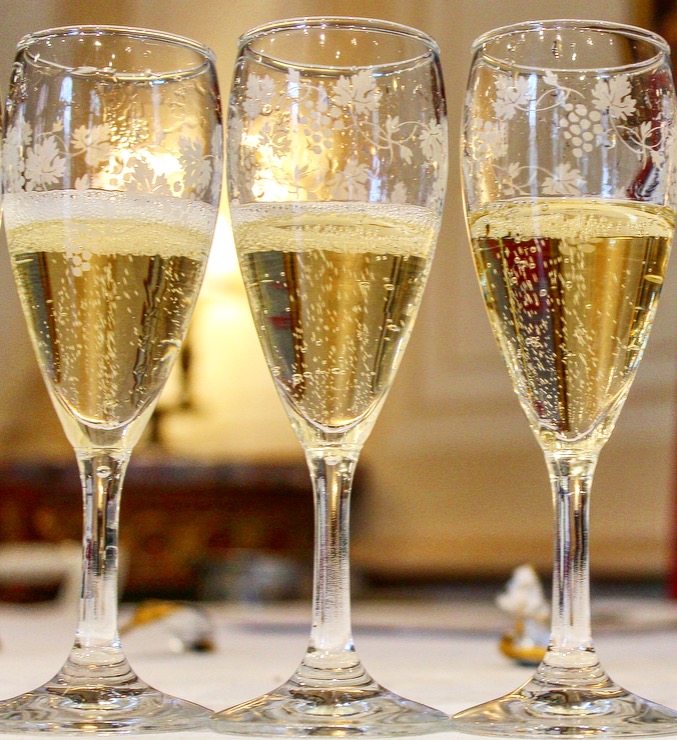
Blanc de Blancs ready to be tasted at G.H. Martel
As a lover of wine and the finer things in life, my love for Champagne was inevitable. Having just blown out the candles on my 24th birthday, I couldn’t think of a more fitting place to celebrate than in the region where luxury is bottled.
Early on a Saturday morning, my Finnish friend and I boarded a north-bound train from Bordeaux to spend a fabulous weekend in Reims, the capital and largest city of the Champagne Region. Home to some of the largest Champagne Houses and an iconic Gothic art cathedral, Reims is a fine base for exploring what the region has to offer.

Cloudy skies may not have been the most welcoming site, but the town’s plethora of golden bubble offerings made all things bright. With umbrellas in hand and rubber boots on our feet, we started for the dapper city center. Attractive boulevards lined with brasseries and boutiques usher amblers to the gem of the city, the Cathédrale Notre-Dame de Reims.
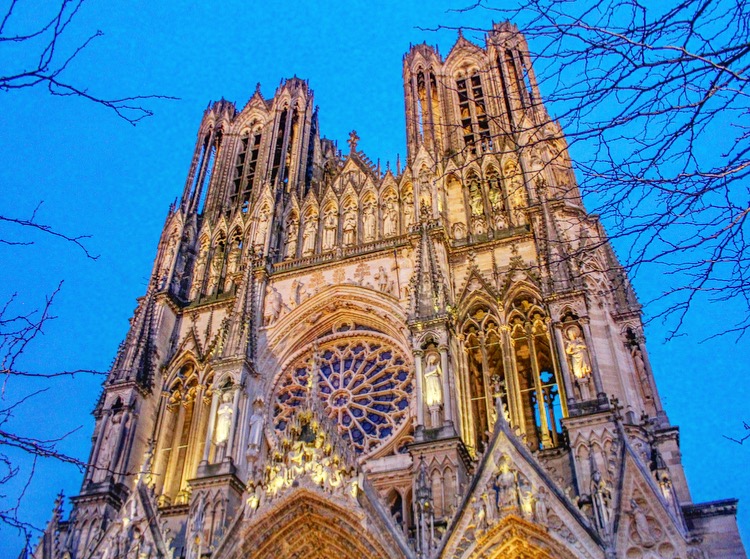
You may think that living in France and seeing historic wonders in plentitude would make one immune to the awe of the Reims Cathedral. This is far from the truth.
I rounded the street corner and peeped from inside my fanned umbrella to take a first glimpse of this gigantesque structure. Completed in 1311, after 100 years of construction, it is considered among the most stunning Gothic cathedrals to this day. The Reims Cathedral has also maintained a significant place in French history, serving as the coronation site of virtually every French king. Over the course of a millennium, nearly two dozen kings began their reigns on its sacred ground, forever linking the city of Reims and its drink of choice to celebration.
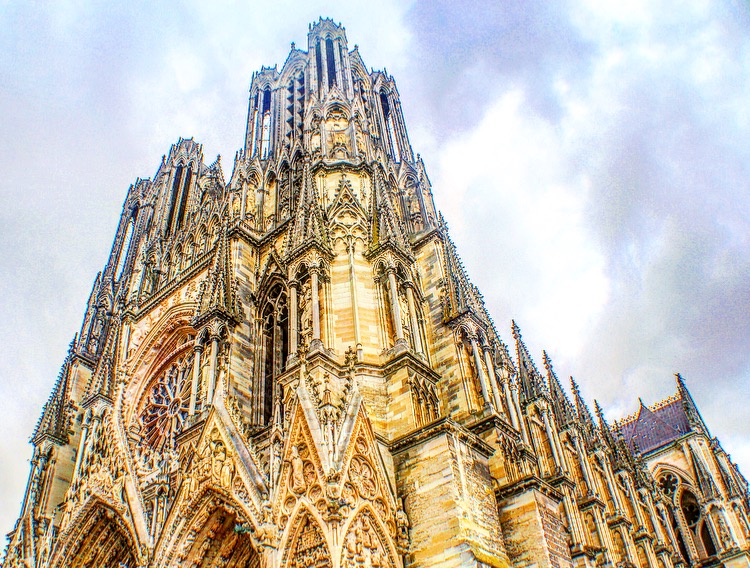
Yet quite ironically, despite its fizzy cheerfulness as a wine, the Champagne region itself has a dark chapter in its book, especially when it was a grim battlefield during the Great War. Reims was luckier than most war-struck cities in thanks to the immense system of chalk quarries that had been dug beneath it during the 4th century. These chalk caves, called crayères, are used today for cellaring bottles by leading Champagne Houses, such as Ruinart, Vueve Clicquot, and Pommery. Although at a time, the caves served a different purpose.
During World War I when Reims was under constant attack, the deeply carved pits served vital importance as makeshift shelters, hospitals, and schools. Remaining intact against the odds, the crayères’ continued preservation is of high priority. These architectural miracles are a must see whether a lover of bubbly or not!
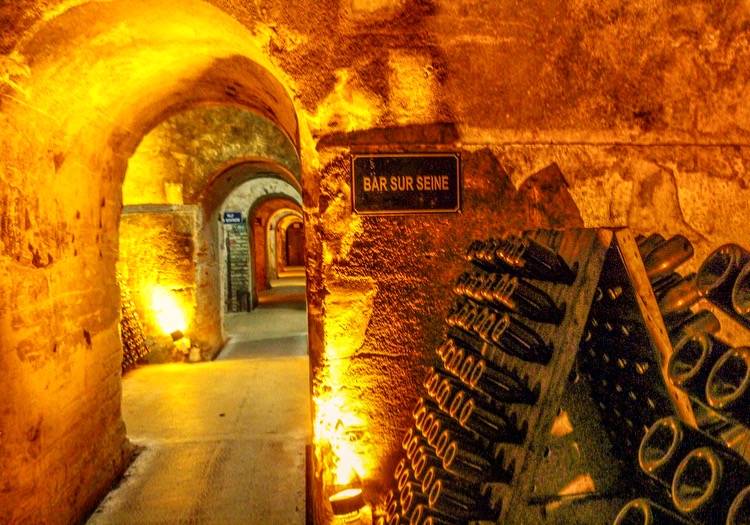
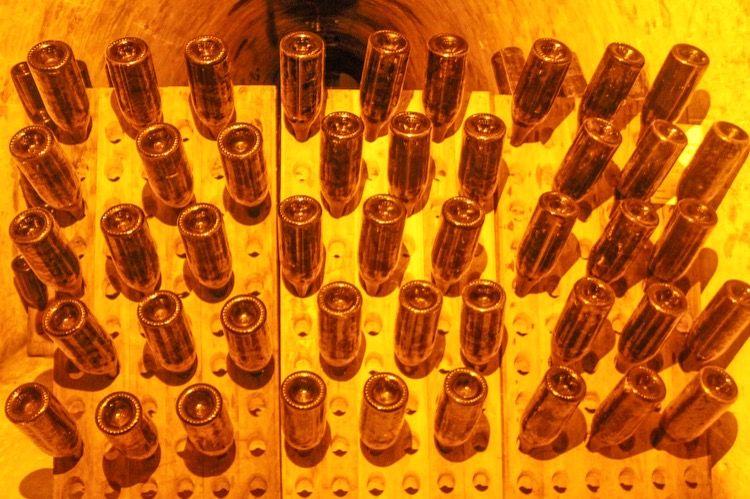
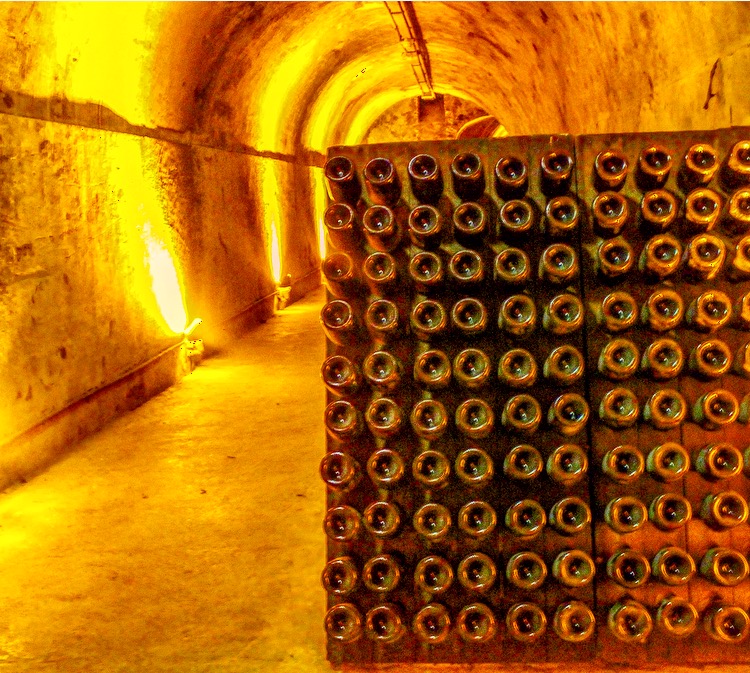
Pommery:

Each house has its own character that makes them different from the others. For Pommery, its strong relationship with the art world makes it stand out like no other. The house sits on a large estate just outside the center of Reims. An iron gate wraps around the blue Elizabethan styled building that sits elevated on a hill.
Immediately you notice a large inflated bouquet of fruit sitting on the front lawn, hinting at the colorful afternoon that is in store for Pommery visitors.
The tour begins with a 130 foot descent to the dark and damp caves hidden beneath the Pommery House. Lit only by flood lights, the dank cellars offer a unique ambience. Voices echo, even with the slightest whisper, exuding an eerie feeling. But soon you realize the Pommery caves are nothing more than a blank canvas for world-renowned artwork.

“Happy, Happy” by Korean artist, Choi Jeong Hwa, making a statement about global plastic consumption
The maze of chalk halls display century-old frescos alongside abstract creations such as Picasso’s “La Guernica” made entirely from colored sand, a very meaningful replication referencing the tragedies of war.
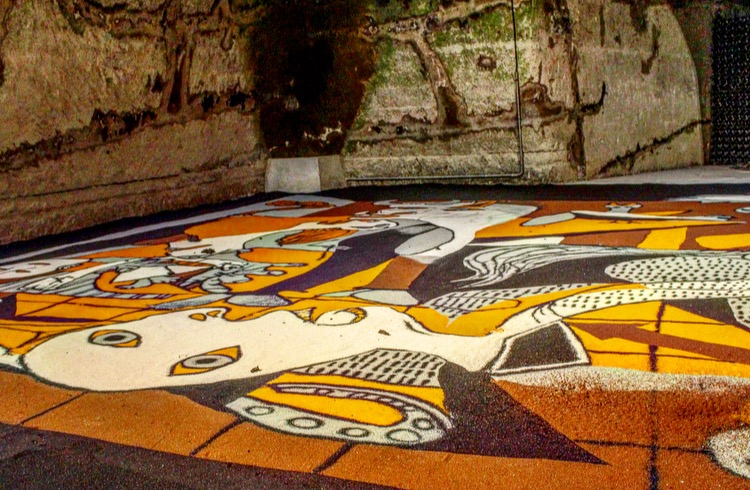
Immersed in a sea of art, it’s easy to forget you are amidst millions of bottles of Champagne, old and new, vintage and non-vintage that are being lovingly cared for your drinkable pleasure.
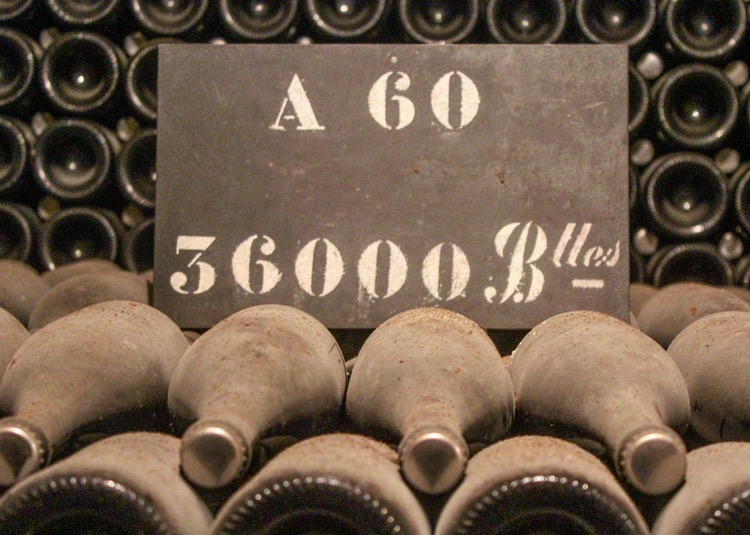
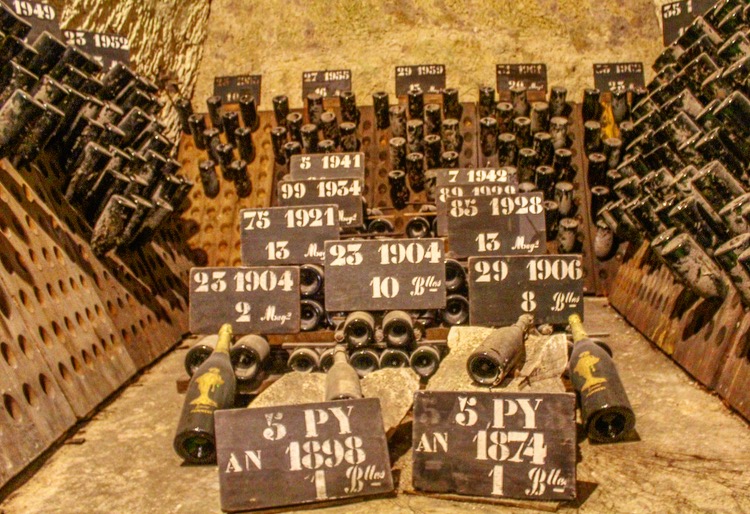
The forty-five minute tour finishes upstairs with a glass of your choice. I went classic with a flute of Pommery Brut Royale. Nice, crisp and of course those bubbles!
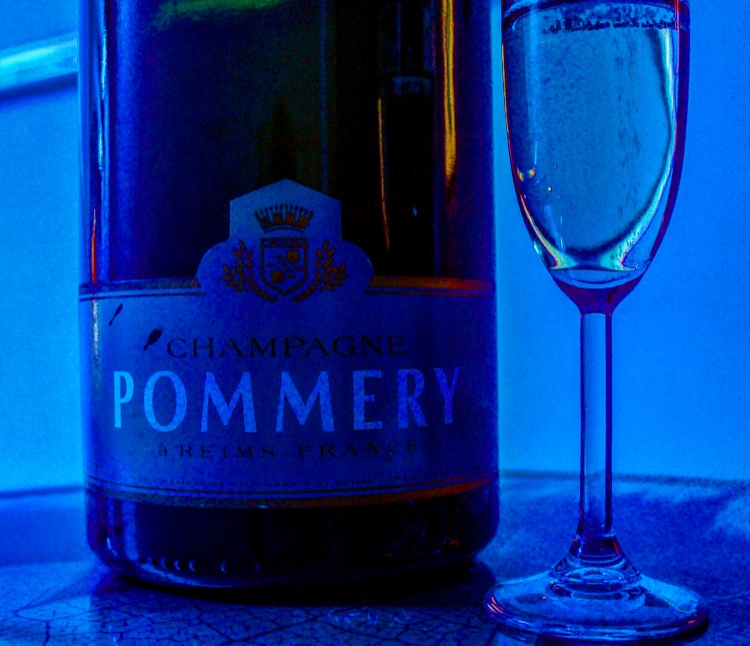
G.H. Mumm:

Another iconic Champagne House is Maison Mumm, located inside the Reims city center. When you come for a tour at Mumm, little do you know of the magnitude of tunnels that lie beneath the estate. To my surprise, our tour was led by an eccentric Italian who kept us on our toes when we ventured below to the quarries.
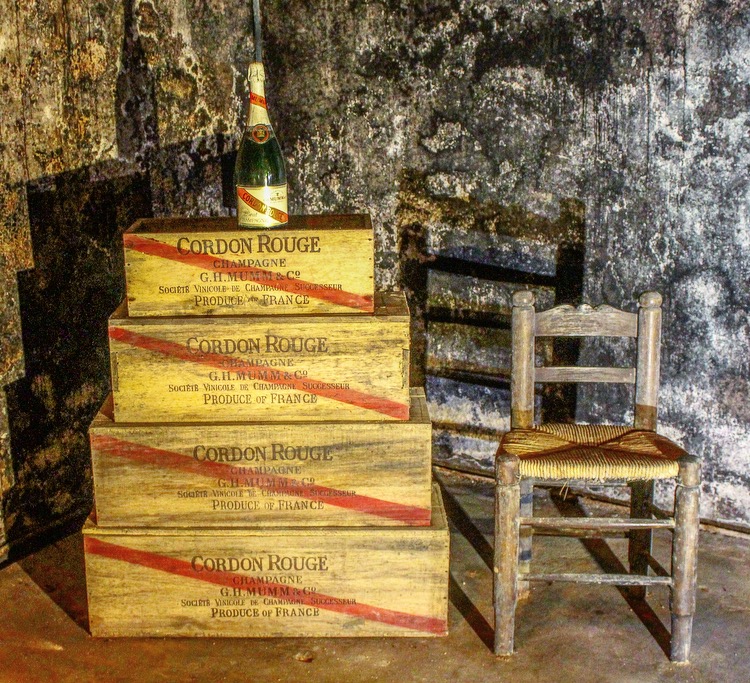
While Pommery’s royal blue is its claim to fame, for Mumm it is certainly scarlet red…Red stairs, red lights, red walls, and of course those little red stripes printed on every Mumm bottle. Inspired by the red sashes given to France’s highest honorees, the Cordon Rouge has become a powerful symbol of the Champagne world.
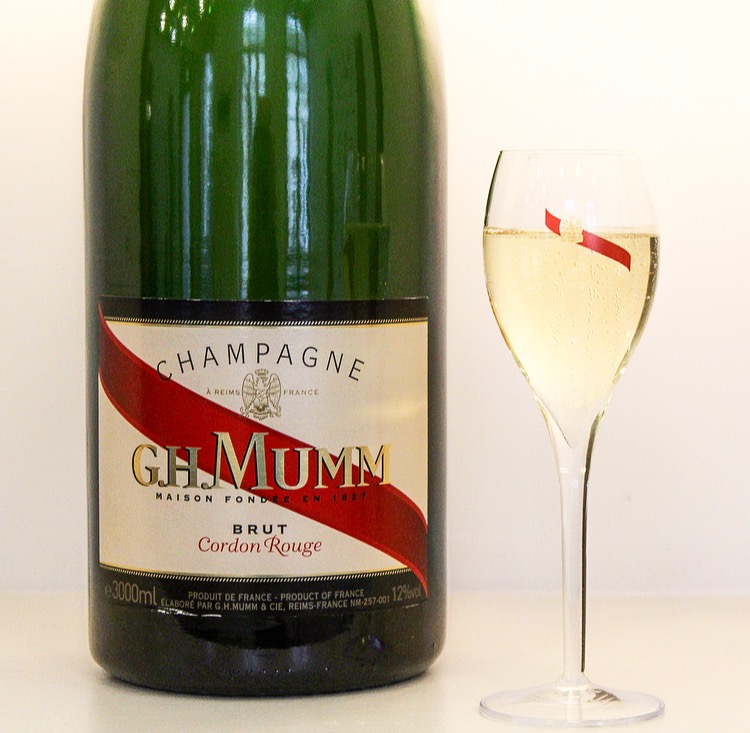
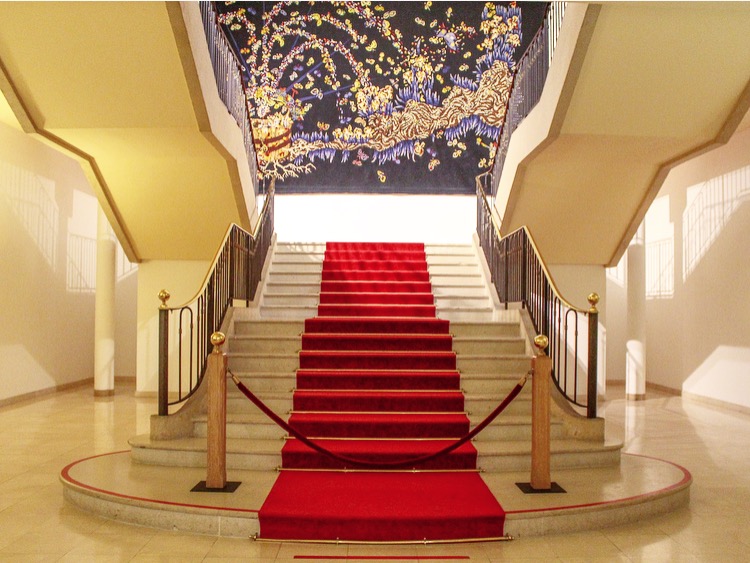
I ended my visit with a glass of the house’s signature cuvée. I sipped and strolled along in a red room overlooking the estate’s puddle covered courtyard. The hissing sound of my Champagne’s delicate bubbles rushing to the brim almost tuned out the pitter patter outside.
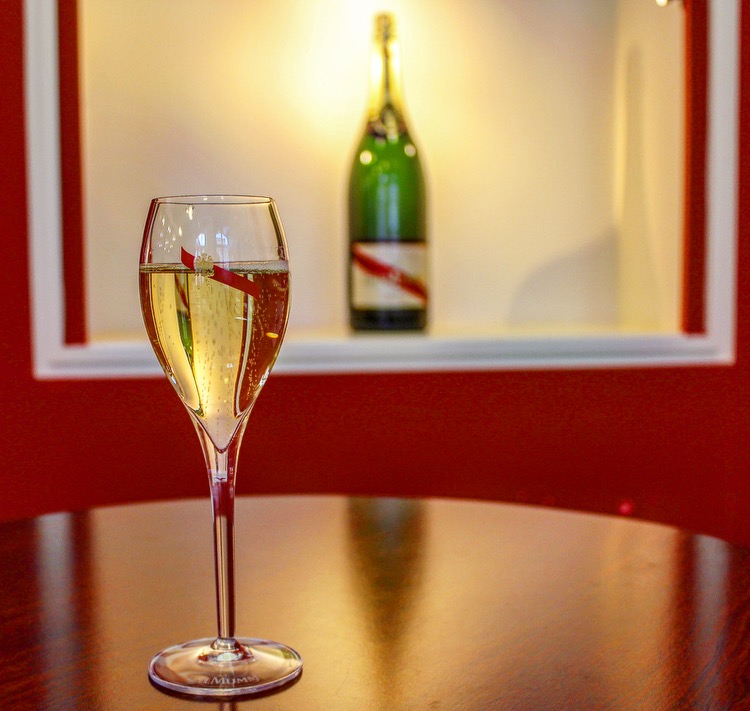
After a long day taking cover from the rain by ducking in and out of Champagne Houses (poor us) it was to my amusement that the sun decided to join us just before it set. Reims glowed beneath the fire in the sky and I was happy to have a fleeting glimpse of springtime in Champagne.

View of the Cathédrale Notre-Dame de Reims
Reblogged this on BubblyBEE.com and commented:
Pop open a bottle of your favorite bubbly and enjoy these sparkling photos!
Thanks for the re-blog and thanks for reading! Love your page as well. Cheers!
Love this! Cheers to March birthdays. Great blog post. Your pictures are amazing .
Thank you! Looks like you enjoyed your recent trip to Reims as well. Looking forward to reading about your upcoming adventures!